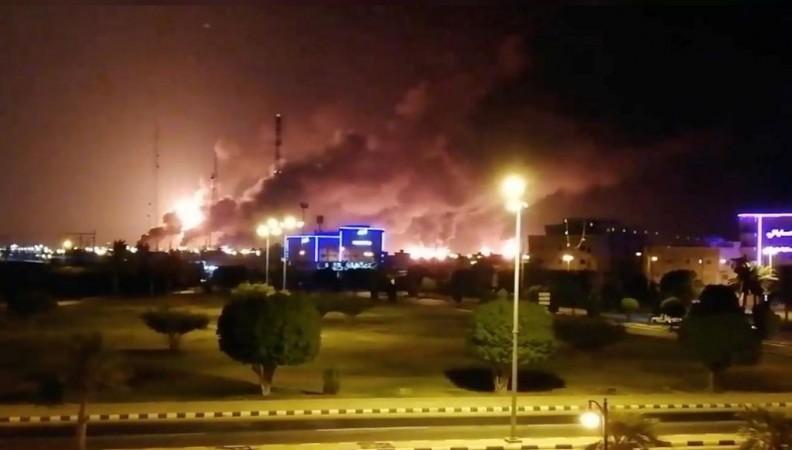
The drone attacks by Iran-backed Houthi fighters on Saudi Arabia's state-owned Aramco oil facilities have curtailed production of crude oil and gas of the world's top exporter by half.
Saudi Energy Minister Prince Abulaziz bin Salman said the attacks on Abqaib and Khurais facilities cut the company's overall crude oil supply by around 5.7 million barrels per day (bpd), according to Saudi state-run news agency SPA. As the world's biggest oil exporter, Saudi ships more than 7 million bpd to the global market.
He said the attacks resulted in temporary suspension of operations at the two oil processing plants and the fall in production would be made up from existing stocks.
"Part of the reduction will be compensated for through drawing from Aramco's oil stocks," the minister said.
In fact, the strikes follow earlier cross-border attacks on Saudi oil installations and on oil tankers in Gulf waters. But Saturday's attack was very significant considering the magnitude of the damage as it crippled half of the country's energy output, at least for a temporary period.
These explosions have also resulted in Aramco to halt production of 2 million cubic feet per day, which was used to produce 700,000 barrels of natural gas liquids. This, in turn, will curtail the supply of ethane and natural gas liquids by half.
The oil processing plant at Abqaiq handles crude from the world's largest conventional oilfield, the supergiant Ghawar, and for export to terminals Ras Tanura - the world's biggest offshore oil loading facility - and Juaymah. Khurais contains the country's second-largest oilfield, a Reuters report said.
The minister added that the terrorist attacks and sabotage are an extension of the recent attacks that targetted oil and civil facilities, pumping stations and oil tankers in the Arabian Gulf. These attacks are not only aimed at the vital installations of the Kingdom but also on the global oil supply and its security, thus pose a threat to the global economy, the SPA report said.
However, there were no injuries of workers at these sites, Saudi Aramco Chairman and Chief Executive Officer Eng Amin Hassan Al-Nasser said, adding that his company is still in the process of assessing the overall impact on the production facilities.
Saudi Arabia, leading a Sunni Muslim military coalition that intervened in Yemen in 2015 against the Houthis, has blamed rival Iran for previous attacks, which Tehran denies.

















